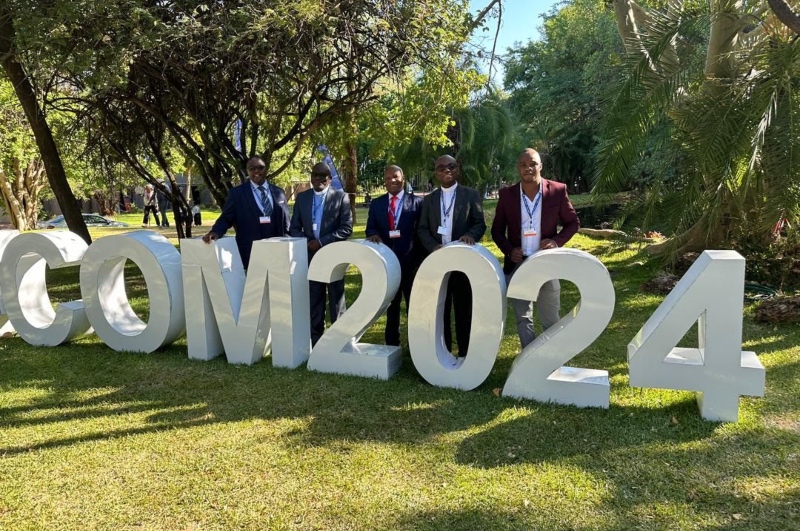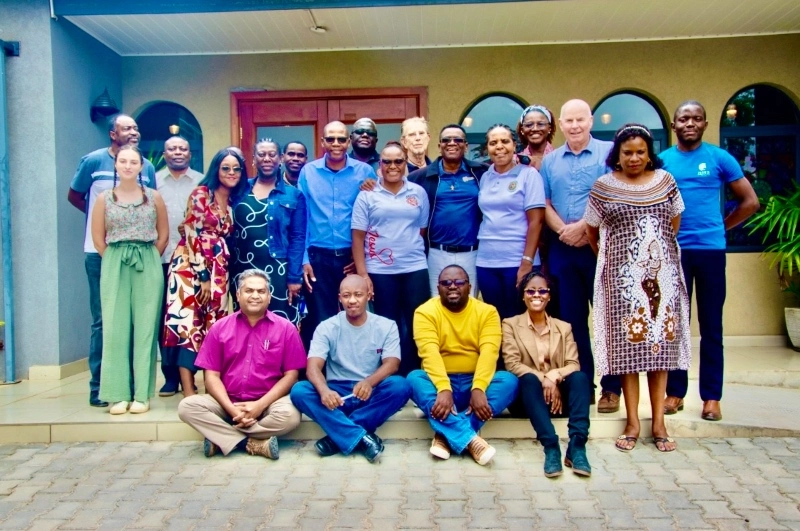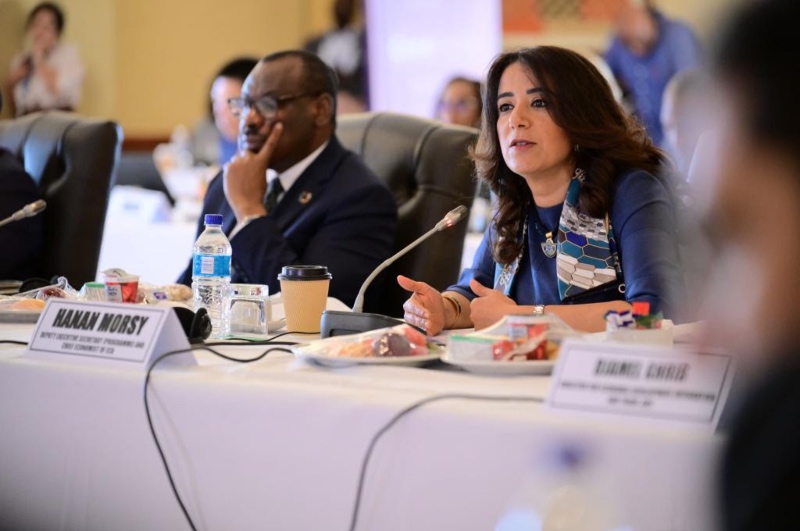

The Jesuit Justice and Ecology Network - Africa (JENA), led by its Director, Fr Charles Chilufya, SJ, participated in the recently concluded 56th session of the Economic Commission for Africa (ECA) Conference of African Ministers of Finance, Planning and Economic Development.
The conference, held in Victoria Falls, Zimbabwe, from 28 February to 5 March 2024, focused on "Financing the Transition to Inclusive Green Economies in Africa: Imperatives, Opportunities, and Policy Options".
The JENA delegation included notable church actors such as Rev Dr Gabriel Mapulanga from the Zambia Conference of Catholic Bishops and Caritas Zambia Director, Fr Emmanuel Chikoya, General Secretary at the Council of Churches in Zambia, Dr Alois Madhekeni from Silveira House in Zimbabwe, and Mr Garth Phiri, a consultant with the Jesuit Centre for Theological Reflection (JCTR).
Overview of the 56th session of the Economic Commission for Africa (ECA) Conference
Set against the breathtaking scenery of the mighty Victoria Falls, locally known as the “Mosi-oa-Tunya” (The Smoke that Thunders), the 56th session of the Economic Commission for Africa Conference of African Ministers of Finance, Planning and Economic Development was a convergence of minds and missions. Government officials, institutional representatives, and diverse stakeholders from across the continent and beyond gathered to forge a path toward sustainable economic growth in Africa. The dialogue transcended mere discussions, evolving into a vibrant exchange of innovative strategies aimed at navigating the complex challenges facing the continent.
The urgency of the moment was palpable, driven by the dual pressures of the African debt crisis and the escalating threats posed by climate change. Participants were united by a common recognition: the imperative for immediate and collective action. The conference's agenda was ambitious, targeting the mobilisation of innovative financial instruments as a cornerstone for progress. Debt-for-nature swaps, regional blue bonds, and the potential of regional carbon markets were explored not just as ideas but as actionable strategies to propel Africa toward a sustainable future.
Deepening domestic resource mobilisation emerged as a critical theme, with discussions highlighting the necessity of reforming tax systems and capital markets. Such reforms were identified as vital steps to reduce reliance on external borrowing, which has become increasingly costly and unreliable. The emphasis was on fostering self-sufficiency and sustainability, ensuring that Africa's economic destiny remains in its own hands.
The conference also spotlighted the African Continental Free Trade Area (AfCFTA) as a pivotal force for economic integration and development. The collective vision was clear: to advance the implementation of the AfCFTA, overcoming regulatory, logistical, and political barriers to unlock unprecedented opportunities for intra-African trade and investment.
Moreover, the discourse extended to the vital areas of food security and energy transformation. In an era marked by global uncertainties and disruptions, the call to action was for Africa to leverage its collective resources and ingenuity. The goal was to ensure that the continent is not just a bystander in the global digital and green transitions but a leading participant and beneficiary.
As the conference unfolded, the majestic Victoria Falls served as a powerful symbol of Africa's potential and resilience. The collective commitment of the participants to foster inclusive green economies across the continent underscored a shared resolve: to embrace innovation, deepen cooperation, and mobilize resources for the sustainable development of Africa. The challenges are significant, but so too are the opportunities—and the 56th session of the ECA Conference of Ministers has laid down a marker for the journey ahead.
Key Takeaways and Recommendations
Innovative Green Investment Strategies: President Emmerson Mnangagwa of Zimbabwe emphasized the need for innovative instruments to foster climate action and address the current debt crisis. He highlighted the importance of debt-for-nature swaps, regional blue bonds, regional carbon markets, and natural capital accounting to aid in poverty eradication and safeguard ecological thresholds.
Deepening Domestic Resource Mobilisation: Claver Gatete, Executive Secretary of the ECA, stressed the importance of accelerating regional integration initiatives, addressing the African debt crisis, and deepening domestic resource mobilisation for sustainability. He also highlighted the need for reforming tax systems and investing in capital market development.
Advancing AfCFTA Implementation: Experts proposed the theme for the next Conference of Ministers (COM2025) to be "Advancing the Implementation of the Agreement Establishing the AfCFTA: Proposing Transformative Strategic Actions." The focus will be on developing and advancing cross-border payment systems, reducing the high cost of transportation across Africa, and using the AfCFTA agreement to advance the development of carbon markets. Addressing Food Security and Energy Transformation: The conference underscored the importance of regional integration to address food security and energy transformation. The aim is to improve access to digital services, address the skills and education gap, and ensure that Africa's private stock of assets contributes to the green transition and inclusive development.
Related Articles






Select Payment Method
Pay by bank transfer
If you wish to make a donation by direct bank transfer please contact Fr Paul Hamill SJ treasurer@jesuits.africa. Fr Paul will get in touch with you about the best method of transfer for you and share account details with you. Donations can be one-off gifts or of any frequency; for example, you might wish to become a regular monthly donor of small amounts; that sort of reliable income can allow for very welcome forward planning in the development of the Society’s works in Africa and Madagascar.
Often it is easier to send a donation to an office within your own country and Fr Paul can advise on how that might be done. In some countries this kind of giving can also be recognised for tax relief and the necessary receipts will be issued.



